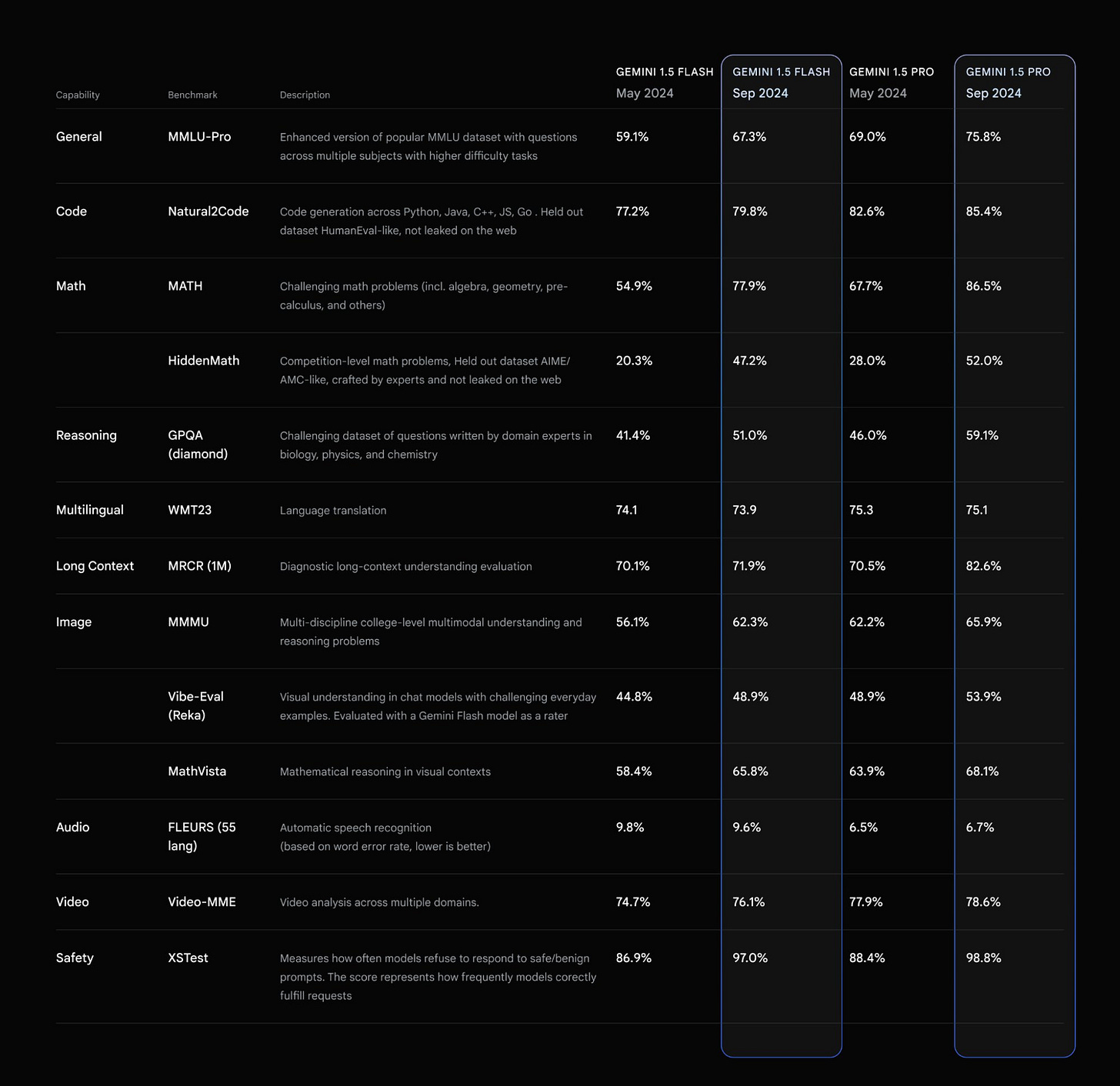GPT advanced voice mode goes live, stealing the Spotlight from Gemini's major upgrades
The giant in OpenAI’s shadow.
Just as the buzz around OpenAI CEO’s cryptic post started to fade, his true intentions became clear today—a strategic move aimed directly at Google’s latest release of Gemini models.
With a simple yet powerful announcement, OpenAI rolled out the highly anticipated GPT advanced voice feature, perfectly timed to overshadow Google’s big unveiling of Gemini-1.5-Pro-002 and Gemini-1.5-Flash-002.
GPT’s advanced voice mode is here
OpenAI’s ChatGPT is now equipped with Advanced Voice Mode, which begins rolling out to Plus and Teams users this week. Supporting over 50 languages, this new feature is set to revolutionize how users interact with AI.
Key enhancements include faster response times, new accents, and five additional voices—Arbor, Maple, Sol, Spruce, and Vale. This natural voice interaction further blurs the line between human and AI communication, allowing ChatGPT to switch effortlessly between languages, even seamlessly transitioning from English to Mandarin in the middle of a conversation.
The voice feature also includes customizable instructions, letting users personalize responses and make their ChatGPT experience even more tailored. However, some expected features, like video and screen-sharing, are still in development.
While OpenAI’s reach continues to expand, users in Europe, the UK, and several other regions will have to wait, as the advanced voice functionality is not yet available in those areas.
Google’s Gemini update: a developer’s delight
Meanwhile, Google has introduced substantial updates to its Gemini models, focusing on efficiency, cost reduction, and speed. The Gemini-1.5 series is built with developers in mind, offering a 50% cut in token processing costs, double the speed, and reduced latency. With support for longer context windows (up to 2 million tokens) and a more concise output style, these updates are aimed at improving scalability for enterprise-level applications.
However, beyond the developer community, Google’s efforts haven’t sparked much enthusiasm. Some industry insiders believe that with Google’s resources, they could have delivered a more groundbreaking update, especially considering the innovations from competitors like OpenAI and Anthropic.
Gemini in the shadow of ChatGPT
Though Google’s Gemini-1.5 models showcase impressive performance, they remain largely overshadowed by OpenAI’s bold moves—especially the introduction of GPT’s voice functionality. Despite technical improvements, many within the AI community, including some from within Google itself, are noting an increasing gap between the two. A recent survey revealed that over 75% of developers prefer using GPT models for their AI applications, while only a small fraction opt for Gemini.
Google has seen some success in the B2B space with its production-grade models like Gemini-1.5 Pro and Flash, particularly among large enterprises. However, when compared to the widespread consumer appeal and developer-friendly ecosystem of OpenAI, Gemini struggles to gain the same momentum. The complexity of Google’s AI platform, combined with slower innovation cycles, has led many developers to stick with OpenAI’s simpler and more seamless offerings.
Even with Gemini’s support for longer context windows and faster output, it seems unable to break out from under the shadow of ChatGPT’s widespread adoption, both in individual and enterprise settings.
Why high expectations lead to disappointment
As OpenAI continues to push boundaries with voice and multimodal functionalities, the spotlight remains on its rapid innovation. Meanwhile, Google’s Gemini updates, though technically sound, have been met with muted responses. This stems not from Gemini’s limitations but from the high expectations placed on Google, given its resources and history of innovation.
While Google’s updates provide value for developers seeking cost-efficient AI solutions, they lack the excitement OpenAI consistently delivers. For now, OpenAI’s relentless pace sets the standard, leaving many to wonder when Google will meet the high bar the industry expects.




